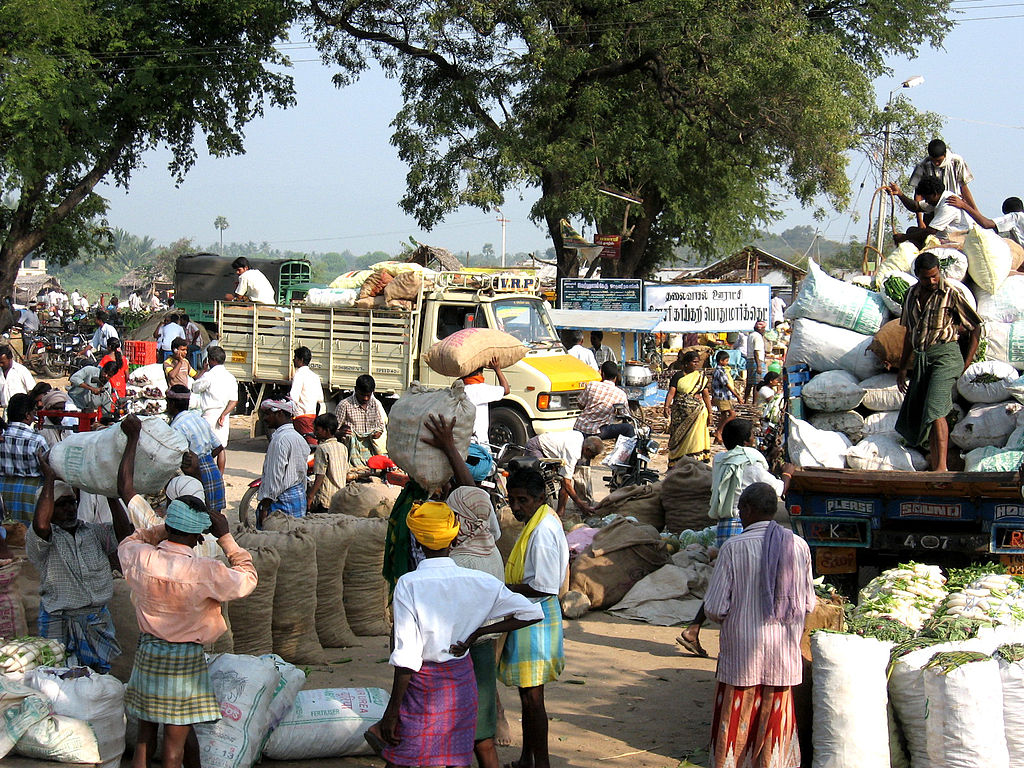Since the COVID-19 pandemic reached India, the focus of nonprofits and CSR funders has shifted towards responding to it immediately—from providing relief to migrant workers, to giving targeted support to their end-beneficiaries. While it is the right thing to do at this time, near-term work on relief may have an unintended, adverse longer-term impact on nonprofits, especially on those with significant CSR funding.
Near-term work on relief may have an unintended adverse longer-term impact on nonprofits, especially on those with significant CSR funding.
To understand this longer-term impact, FSG conducted in-depth interviews with 22 nonprofits, 18 CSR heads, CEOs of corporates, and heads of industry bodies. The nonprofits we interviewed have a staff of between 15 and 250 people, do on the ground programmatic work, and have operations beyond large metropolitan areas. The CSR heads and CEOs were from large Indian and multinational companies, with significant experience in the development space. In these 45- to 60-minute interviews, we focused on understanding the current and expected funding and activities of these nonprofits and CSR funders, with the aim of helping nonprofits understand how CSR funding is likely to change, and to make decisions based on that.
In this article, we share our learnings from the study, and some ways in which CSR funders can support their nonprofit partners during this period.
Funding for traditional CSR activities will reduce by 30-60 percent
While there is still a lot of uncertainty among CSR funders, and the actual implications of CSR funding for nonprofits will vary, some trends did emerge in our conversations.
Every CSR funder we spoke to was actively supporting relief activities related to COVID-19. For most, decisions such as contributing to the PM-CARES Fund or supporting local relief measures were made by the corporate leadership. With the exception of one CSR funder, all respondents said that these efforts were being financed through the company’s CSR funds.1
Related article: Data and insights on CSR’s COVID-19 response
While all CSR heads said that they wanted to support their long-term nonprofit partners, more than 80 percent 2 said that their funding for traditional CSR activities (or non-COVID-19 work) would decrease. Of this, about two-thirds said that they may even have to reduce funding under some of their formal commitments, and all of them said that they would not be able to keep their informal or verbal commitments. We estimate that funding for traditional CSR activities could reduce by 30 to 60 percent.
All CSR funders said that they are unlikely to fund new partners, except for COVID-19-related activities. They also mentioned that they would modify their funding plans to prioritise needs emerging from COVID-19. More than three-fourths of the respondents stated that they would continue to fund COVID-19-related efforts, and would like to allocate it through existing partners.
Some CSR funders said that they would like their nonprofit partners to think of how they would work in the post-lockdown world. This could include new forms of programme delivery, efforts to leverage technology, ways to address the needs of returning migrant labourers and their families, and so on.

While all CSR heads said they wanted to support their long-term nonprofit partners, more than 80 percent said that their funding for non-COVID-19 work would decrease. | Picture courtesy: Needpix
Nonprofits would need to adapt to the changing environment
Interestingly, more than half of the nonprofits we interviewed expect to resume business-as-usual after the lockdown is lifted. While they recognise that it may take some time to get back to normal, they broadly expect to engage in the same activities that they conducted before the lockdown.
They still see the value of the services they provide, and don’t yet recognise that the changed priorities of their CSR partners may no longer support these services. We believe that this thinking is driven to some extent by the lack of communication from CSR funders on expected funding cuts, an expectation that funding cuts may not be very large, and an inability to imagine how the needs of their communities and the priorities of CSR funders might change.
However, to ensure the long-term sustainability of their organisation and of the sector at large, nonprofits would need to adapt to the changing funding environment. Here are some ways to do it:
CSR funding cuts are likely to be significantly higher than expected, and they are unlikely to be covered by alternative sources of funding. Therefore, it is important for nonprofits to start thinking about how to significantly reduce costs while maintaining key capabilities, so that work in core areas can ramp up when CSR funding picks up again, potentially in the financial year 2022.
Related article: Nonprofit financial planning for COVID-19
As mentioned above, the near- and medium-term focus of CSR funders is likely to be COVID-19, and so nonprofits that can adapt their work accordingly would have the opportunity to continue getting funded by their CSR partners.
It would also be important for nonprofits to leverage their on the ground presence to learn about new and emerging needs, and try to address them. For instance, a nonprofit that works on building awareness for preventive healthcare could provide COVID-19 related actionable guidelines to the community. Similarly, a skilling organisation could work with CSR partners to identify sectors for which the demand is likely to be high after the lockdown, and start preparing for those.
There will be a need for nonprofits to explore newer ways of serving communities. For instance, how will nonprofits deliver programmes while maintaining physical distancing norms? If a community they are working with becomes a hotspot, how will they continue to support it? How can they leverage digital communication tools?
CSR teams can still support long-term nonprofit partners
Reprioritisation by CSR funders towards COVID-19, and reduction in funding for non-COVID-19 related work could have negative implications for important areas they have supported in the past, and where their nonprofit partners have developed capabilities.
Many CSR teams still have the flexibility to manage the rest of their funds.
Even when decisions related to broader COVID-19 funding—how much should be allocated and where—are being taken by the corporate leadership, many CSR teams still have the flexibility to manage the rest of their funds. Our respondents shared two broad ways in which these funds can utilised to support their long-term nonprofit partners:
CSR teams should work with their existing partners to identify activities they can support that may not be direct COVID-19 relief or recovery work, but could still be valuable in the COVID-19 context (such as mental health or initiatives against domestic violence). This would help nonprofit partners maintain their core capabilities while also filling gaps that other actors are currently not addressing. For example, a funder with a focus on children with special needs enhanced a nonprofit partner’s digital capabilities to enable them to provide remote support to parents—a critical need during lockdown, when there is increased household stress and domestic and child abuse.
CSR teams should provide targeted support to partners to help them maintain core capabilities, so that they can ramp up work when there is availability of funding. For instance, one CSR funder plans to continue their infectious diseases programme, but with a smaller geographic focus, restricted to the states with the highest need. Another funder worked with their nonprofit partner to ensure that they were able to complete their evaluation, and get their results-based payments for the previous financial year. Some funders are working with their partners to identify which activities are high-priority and which could be delayed without significantly affecting long-term capabilities.
Additionally, CSR funders who are supporting their long-term nonprofit partners can share best practices and learnings with other CSR teams. As more funders support their partners in an area, there will be a broader recognition of the value of the area itself.
- Three organisations mentioned that in addition to funding COVID-19 relief efforts, they also had a programme where employees contributed to COVID-19-related efforts and the organisation matched employee contributions. In such instances, the organisation’s contribution was over and above its CSR funds.
- Because of the low sample size, the percentages quoted throughout the article should be taken as indicative numbers.
With inputs from Valmik Ahuja and Vishnu Rajeev.
The authors spoke to Arthan, Atma, Bridgespan, Caring Friends, Centre for Social Impact and Philanthropy at Ashoka University, Dalberg, Dasra, GiveIndia, GuideStar India, India Development Review, Samhita, Sattva Consulting, and TBL Consultancy Services for the study. They provided invaluable inputs, right from designing the study, to thinking through the implications.
—
Know more
- Read this circular by the Ministry of Corporate Affairs, answering frequently asked questions about what qualifies as CSR expenditure during COVID-19.
- Learn more about the current and expected impact of COVID-19 and the lockdown on CSR in India.
- Explore this COVID-19 response plan for nonprofits, which includes guidelines by experts and practitioners to help civil society organisations amplify their efforts and provide support to vulnerable communities.
Do more
- To learn more about the study, please contact the authors at Ashish.Karamchandani@fsg.org, Johan.Thuard@fsg.org, or Sujata.Rathi@fsg.org.







